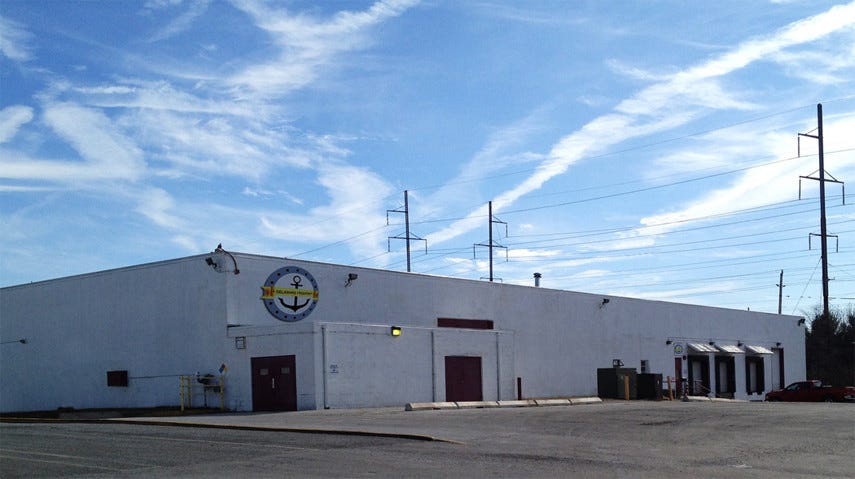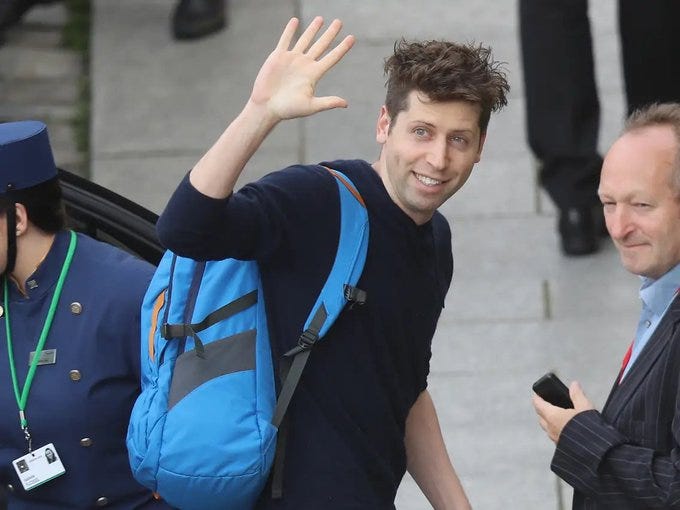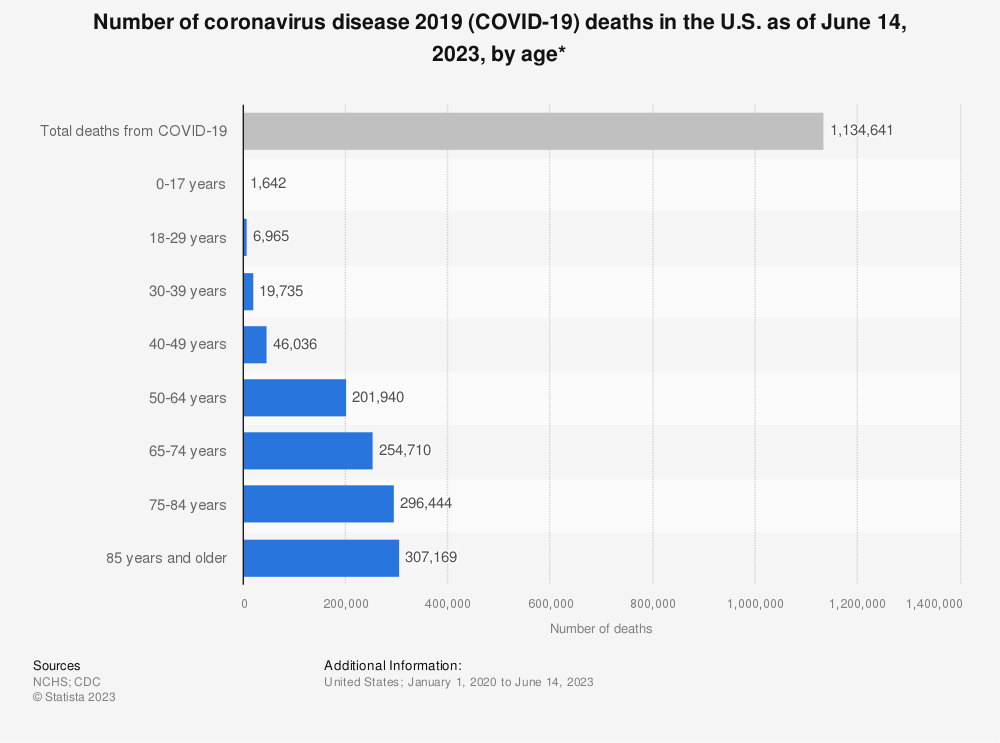Churn. It’s the one word that perfectly encapsulates life in the U.S.
Churn is the never-ending, wildly invasive stream of ads that swallow you from the minute you wake up till your head hits the pillow—ads that are the life blood of a country whose primary economic driver is consumer spending. That toaster ad that chases you around the Internet? It’s happening because your personal data, including all your keystrokes, whether you’re browing in incognito mode or Google Chrome, (heads up, porn enthusiasts), are sold to the highest bidder, in this case Oster, Cuisinart, and Smeg.
Churn is the sheer volume of images, information, passwords, reCaptchas, videos, how-to videos, glitchy software, Ted Talks, Instagram advice, and the 24-hour news cycle. It’s the way we bombard ourselves with data and information but gain nothing in actual knowledge. I truly believe our brains can’t handle this tsunami, and it is slowly driving us mad—especially after two years in isolation.
Churn is knowing while you’re idling in deadlocked traffic during your daily commute on the 405, YouTube influencer/Union Square riot instigator Kai Cenat makes $23,280 a month recording himself sleeping.
Churn is how we date. Swipe, swipe, swipe to the right, and then we’re on to the next disappointment. Nothing registers above lukewarm because nothing’s at stake, and we venture no part of ourselves to obtain it.
Churn is how we make art in this country. Art is no longer controversial, provocative, or edgy; merely unfathomable. It serves as a mirror, one meant to assign cultural and economic status to the possessor. Art is an investment portfolio. Oligarchs, despots, and obscenely rich tax evaders buy up as much of it as they can and then store it in places like the Geneva Freeport, a heavily secured warehouse in Switzerland that’s the size of 22 soccer fields. This warehouse holds over one trillion dollars worth of art and looted antiquities, including works stolen by Nazis and never repatriated.

Churn in America is also microcosmic. It happens every time your barista, healthcare provider, gas station attendant, fast food waiter swivels a transaction terminal your way, demanding a tip. It’s crazies being choked out on subways, gay performers getting shanked in gas stations, homeless drug addicts with festering, maggot-filled wounds lying dead or unconscious in doorways. It’s Elon Musk presiding over his own demented shadow government, Trump dominating the Republican primary, AI depressing wages and running roughshod over the employment sector, AI-creator Sam Altman walking around with a kill switch in his backpack just in case the machines try to murder us, and audience members throwing things at performers during live shows. It’s the price of groceries, of rent, and of credit card interest rates. It’s the depressing realization that our plummeting population is because no one can afford to have kids.
Churn has gotten perceptibly worse since Covid. Center-right pundit David Brooks in this Atlantic article, How America Got Mean, posits that “in a culture devoid of moral education, generations are growing up in a morally inarticulate, self-referential world.” I may not be in lockstep with most of Mr. Brooks’s political philosophy, but I acknowledge his point. Without a clearly defined blueprint for how to behave, we are apt to devolve into the savages we truly are beneath our thin veneer of socialization. It’s been the blink of an evolutionary eye since we were staggering through forests primeval, bashing enemy heads and raping enemy daughters. Science confirms what we instinctively know, which is that we haven’t changed at all since our days as clever monkeys. We’re just better at hiding it.
Regardless of where we’re at on the Covid issue, we can likely agree that the pandemic left a scar. Young people ended up paying the price for all the rest of us (especially those in the 85+ category who were at greatest risk of dying), just as young people pay a price for higher education and contribute most of the taxes that fund Medicaid, Medicare, and Social Security. Do they have universal healthcare? No. Can they afford a house? No. Did we leave them an environmentally habitable planet? No. But in the prime of their lives, they were expected to isolate in ways that were uniquely unhealthy for them, even though almost no one under thirty died from Covid. Have we even bothered to thank them?
No wonder they’re bitter and a little neurotic.
Police have checked out. There’s more churn for you. There’s been so much justifiable pushback on police brutality, they’ve more or less stopped doing their jobs. A few months ago, John tried to flag down a law-enforcement officer to stop a fistfight. The cop ambled out to the street, coffee in hand, to get a better view of the fight. He took a long sip and then he strolled back to his car.
And this is hardly a one-off.
Is crime “rampant?” According to the Council for Criminal Justice, there were 24% more homicides during the first half of 2023 than during the first half of 2019, which is troubling, although far below historical peaks. Motor vehicle thefts are up, although despite fevered Fox News reports, residental and non-residental burglaries are down. Retailers are still taking no chances. If you want anything from a makeup concealer to a can of baby formula, you’re looking at a locked Plexiglas case and a ten minute wait at many stores. In a country that needs us to spend the money we trade our youth, time, family, and personal happiness for, these sorts of constraints are just another reason to shop on Amazon.
Churn is knowing that consumer protections are just another funny joke. Where were consumer protections when crypto-king Sam Bankman-Fried defrauded investors out of $1.8 billion? Or when Mark Zuckerberg data-farmed us for ten times that amount? How about when AT&T charged us more for “unlimited data” but secretly throttled down our cell service (by up to 90%) after one YouTube cat video too many? Or when we all put our names on the Do Not Call Registry but keep getting robo-called?
Churn, baby, churn.
Big businesses are powerful, well-funded lobbies who are able to pour unlimited amounts of money into SuperPacs, which then fund the election campaigns of “anti-regulation” politicians like Trump. Do you have a lobby? Yeah, I didn’t think so.
Perhaps my favorite example of churn is the cruel, disrespectful, sadistic way we’re treated by airlines, especially post-pandemic. Have you ever asked yourself why the level of service is suddenly so abysmal? The answer may shock you.
Airlines no longer make most of their money from selling seats on airplanes. More than 50% of their revenue comes from selling your air miles to credit card companies. Airline loyalty programs are profit-paloozas. By co-branding with credit-card-issuing banks, airlines are making more money with less effort than ever before, and banks will pay billions to maintain those partnerships. It’s why your service sucks (they have little incentive to provide you with good service) and even pilots get on the PA system now to hawk airline-affiliated credit cards. Flight attendants earn a commission every time you successfully apply for one.
Airlines are willing to lose money flying you places if it means getting you to enroll in their loyalty/frequent-flyer programs.
This is what happens when you deregulate an infrastructure like aviation. Shockingly, it was then-president Jimmy Carter who signed airline deregulation into law in 1978. Quite frankly, flying has been on a downhill trajectory ever since. The man is 98 years old and on his deathbed, but I’d love to know what he thinks about his decision now.
Churn is the Maui wildfires, the Canadian wildfires, the European wildfires. Churn is knowing that August 26, 2023, marked 42 consecutive days of triple-digit heat in the state of Texas (Houston was 107 degrees today) and Florida is teaching kids that slavery was a happy mix of community volunteerism and a Disney movie.
So, yeah. If you’re wondering whether you’re going crazy, the answer is yes. Going crazy is an adaptive, healthy response to a situation that is so out of control, it’s doubtful we will ever come back from it. Here in New York, the city is losing $1 trillion in Wall Street business because so many of the major firms are fleeing to tax-free states like Florida and Texas. Makes me wonder if the $5,580/mo average rent prices for a small studio or one-bedroom apartment here are actually sustainable.
Is the answer to all this simply unplugging? I have a creeping suspicion that it’s gone beyond the point where burying our heads in the sand will do the trick. My kneejerk Gen X response is, of course, to just cynically watch the world burn, but I’m trying hard not to default to my factory settings. Do we direct our attention to what’s beautiful in our lives—sure, but it likely isn’t possible to do that to exclusion of all else.
What then is the answer?
I believe that awareness is at least half of it. Knowing what’s happening, and why, will inform your voting decisions, the way you shop, the car you drive. If consumer spending is the economic engine of the United States, then spending your money conscientiously is as important as voting.
Every time you pause to watch a video on Instagram, you’re “voting.” Click, and you’re voting. Every click is a brick in your own information silo, the one that’s as tailored to you as a waistcoat. The problem with silos is they’re damned difficult to get out of.
In addition to leading an informed life, our other imperative is to do as Voltaire suggested when he wrote, Il faut cultiver notre jardin. We must cultivate our own garden. Make your time on this planet as loving and beautiful as possible. Know yourself. Don’t live in delusion. Love unabashedly. Easier said, I know, and far beyond the scope of this article to offer any sage instruction, but there are no just-add-water solutions to the existential crises that now face us.
This is where we’re at.
But if we run, everything we’re afraid of keeps chasing us. Only if we turn and face these problems head on do we give ourselves the power to vanquish them. We need to read, we need to vote, and we need to vote with our clicks and our wallets. Now is not the best time to shrug and keep scrolling.
Unless there’s a really good cat video.
Copyright © 2023 Stacey Eskelin
Have some thoughts? I always read them. The comments section is below.







Feral Unregulated Consumer Kleptomaniacs! I’m pretty sure identity theft is a crime. So what part of one’s identity is legally free game these days? We all have a Social Security card, but the irony is nothing’s secure if you’re being social. Whether it’s shopping, dining, or using a social network. Even the iPhone Umbilicus 3,000 needs to be constantly fed with security updates. Is AI really a convenience, or a nightmare of epic proportions waiting to happen? Plastic in, plastic out. Feed the machine! Your article reminded me of the show Person of Interest and the idea of Pre cogs. It’s scary and invasive to one’s sanity for sure, as if everyone is just a number. I agree, a reset to default isn’t the way to go. Awareness is!
There are other tricks you can employ to minimize how you're tracked. For instance, I use a VPN, a non invasive search engine (DuckDuckGo.com does not collect or sell your info) and regularly run programs that sweep and burn the privacy traces left on my computer. When FB breaks down and starts stove-piping ads into my feed, I mark them as irrelevant (which, in fact, they are, since I've been covering my other tracks). Of course, every time I use one of my cards (and I use them for everything) that info is going into the kitty.
I didn't know about the airlines. Of course, I haven't flown anywhere since Christ was a lance corporal.